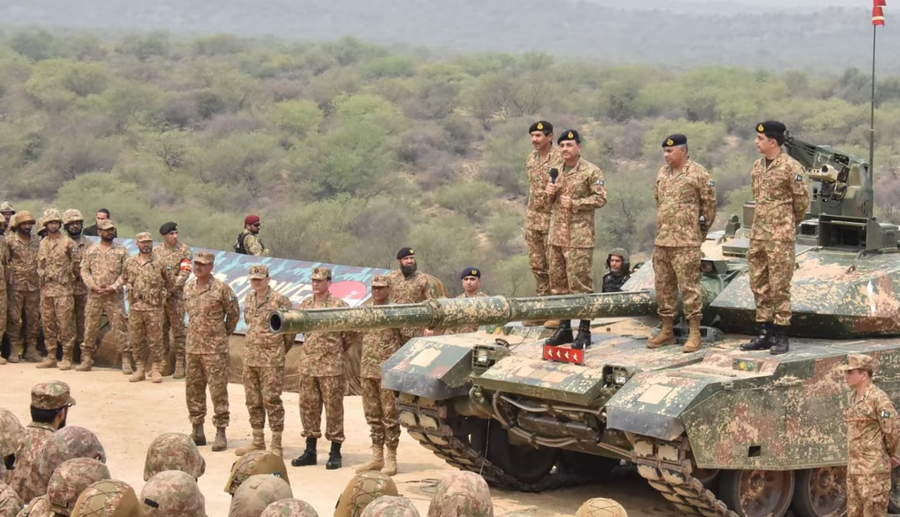
Pakistan has launched a military operation against India after accusing it of missile attacks on three Pakistani air bases late Friday, a move that marks another major escalation in tensions between the nuclear-armed neighbors.
Pakistani security sources told Radio Mashaal that the operation is codenamed "Bunyanun Marsoos", an Arabic word taken from a verse of the Quran meaning "strong pillar".
Meanwhile, Pakistan's Prime Minister Shehbaz Sharif called an emergency meeting of the National Command Authority for Saturday. This authority, among other things, deals with the issue of nuclear weapons.
US Secretary of State Marco Rubio spoke with Pakistani Army Chief General Asim Munir and urged both sides to find ways to de-escalate the situation.
Rubio also offered U.S. help to initiate constructive talks in order to avoid future conflicts, said U.S. State Department spokeswoman Tammy Bruce.
The Pakistan Army's Inter-Services Public Relations (ISPR) said it had destroyed a depot where India was storing BrahMos missiles. The army said it had also struck several other locations, including the Pathankot military airport and the Udhampur air base. It also said it had fired Fatah 1 missiles at the two Indian bases.
The Indian military called Pakistan's operation unacceptable.
"The open escalation by Pakistan with drone attacks and other munitions continues along our western border. In one of these incidents, around 5 am today, several armed drones were seen over Khasa Cantt, Amritsar," the Indian Army said on the X network.
"The hostile drones were immediately destroyed by our air defense units," she said.
Pakistani security sources also claimed that a synchronized cyber attack had been carried out and that electricity in several cities had been cut off.
The same sources, who spoke on condition of anonymity, added that the Pakistani side has decided that if India carries out further attacks, highways in India will be hit.
Pakistan earlier said that the missiles, launched from India, had landed at several different locations in Pakistani territory.
One of the missiles hit the Noor Khan Air Base in the city of Rawalpindi. The base is the headquarters of the army and is located less than 30 kilometers from key buildings such as the Presidential Palace, Parliament and the Prime Minister's residence in the capital Islamabad.
In an extraordinary press conference, immediately after the attacks on the evening of May 9, the Director General of the ISPR, General Ahmad Sharif, said that an Indian attack targeting the Noor Khan air base had been thwarted.
He added that two more missiles were fired at other air bases – Murid and Shorkot. Sharif also claimed that India had also fired several missiles at Afghanistan.
Tensions between the two nuclear powers have risen sharply since an attack on April 22 in a tourist area in Indian-controlled Kashmir that killed 26 civilians, mostly Hindu tourists from India.
The Indian government blamed Pakistan for supporting the attack, but Islamabad has denied involvement.
India and Pakistan, which gained independence from Britain in 1947, have fought three full-scale wars in 1948, 1965 and 1971, as well as a limited conflict in 1999.
The main issue remains the Kashmir valley, which India considers an indivisible part, while Pakistan sees it as an "unfinished issue of partition" of the Indian subcontinent.
Kashmir is divided between three nuclear-armed countries. India controls about 45 percent of it, Pakistan about 35 percent, and China - after a brief war with India in 1962 - holds 20 percent./ REL (A2 Televizion)











